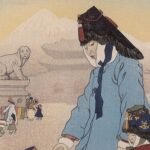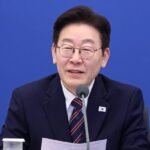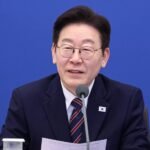Jeju Island (Getty Images)
Following the pandemic, hotels and casinos are enjoying a renewed tourist boom with Chinese tourists returning to South Korea, particularly its top resort island of Jeju. Meanwhile, luxury boutiques at duty-free shops are being sidelined with falling sales.
According to hospitality and duty-free shop industry officials on Tuesday, the Hermès shop at the Silla Duty Free Jeju will close at the end of this month.
The move follows the withdrawal of Louis Vuitton and Chanel stores from the duty-free shop in 2022.
Lotte Duty Free Jeju also saw luxury boutiques such as Louis Vuitton, Gucci and Fendi pull out of business there over the past couple of years.
(Graphics by Dongbeom Yun)
Now, only a handful of luxury brands at major duty-free shops are operating on the resort island, including Louis Vuitton at Lotte Hotel Jeju and the Chanel pop-up store at Hotel Shilla Jeju.
CHANGE IN TOURISM STYLE
Industry officials said the tragic fate of luxury brands and duty-free shops on Jeju despite the return of the Chinese – the largest tourist group among foreign visitors – was due to changes in Chinese groups’ tourism behavior.
Before the COVID-19 pandemic, Chinese tourists visited Korea in groups and spent heavily at duty-free shops, purchasing bundles of premium Korean beauty products and luxury fashion brand items.
Shinsegae’s premium outlet store, Jeju Shinhwa World, on Jeju
Most returning Chinese tourists, however, are now individual travelers and in terms of both money and time are looking for bang for their buck. They prefer buying ordinary or cheap items at local big-box supermarkets or dollar shops and eating at everyday local Korean restaurants.
According to the Jeju Tourism Organization, group foreign visitors to Jeju accounted for 13.9% of all incoming visitors in 2023, down from 57% in 2016. Over the same period, individual foreign tourists to Jeju increased to 84.1% from 40.8%.
Luxury brand store operators also changed their strategy as Chinese consumers snapped up goods in post-pandemic “revenge buying” in their country.
The operators opened more stores in China while closing shops on Jeju as Chinese travelers visit Jeju duty-free shops less.
Jeju Dream Tower Casino
One such example is adding several boutiques inside the duty-free stores at Shanghai Hongqiao International Airport.
HOTELS, CASINOS POST RECORD SALES
Meanwhile, hotels and casinos on Jeju Island are posting record sales with growing numbers of foreign tourists.
Jeju Dream Tower Integrated Resort, which operates a casino and a resort exclusively for foreigners on the island, posted a record 41 billion won ($30 million) in sales last month.
The resort operator’s casino sales increased 2.4-fold to 27.1 billion won in May from the year-earlier period.
Its sales from the hotel business rose 31% on-year to 13.9 billion won as its foreign guests accounted for 62.7%.
Hotel Shilla opened Shilla Stay Plus Ihotewoo in April while Haevichi Hotel & Resort spent 72 billion won to renovate Haevichi Resort Jeju and recently opened it.
By Ji-Yoon Yang
yang@hankyung.com
In-Soo Nam edited this article.















